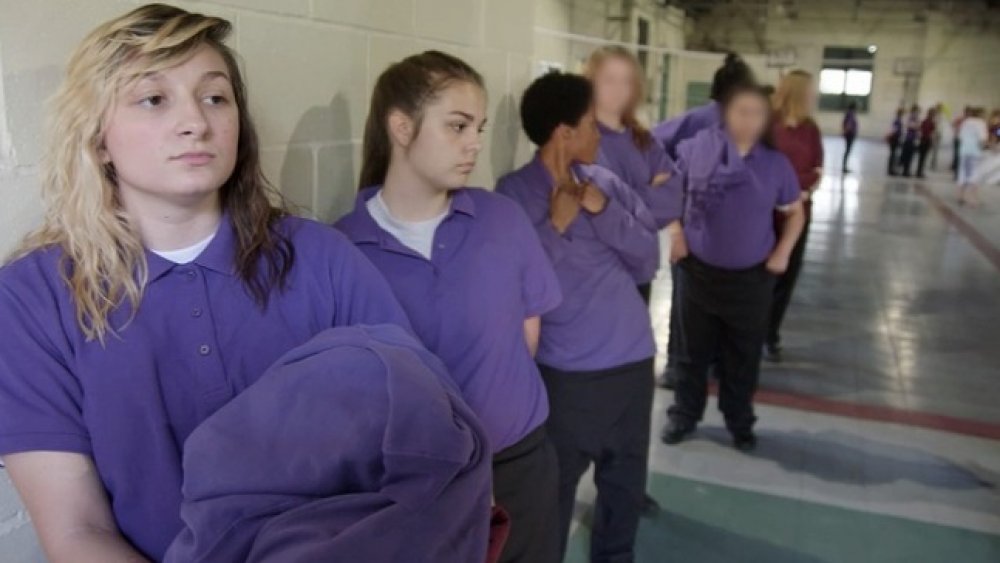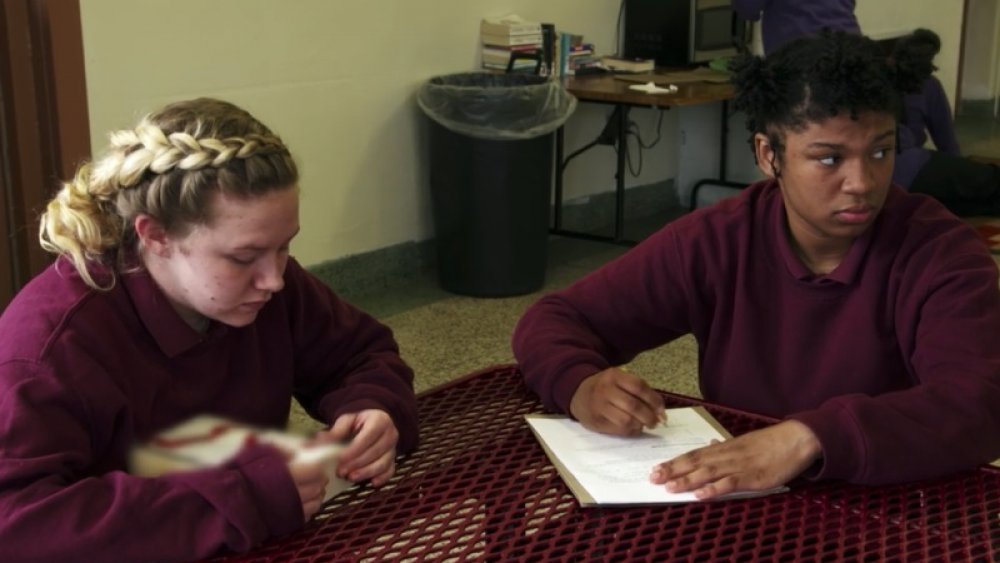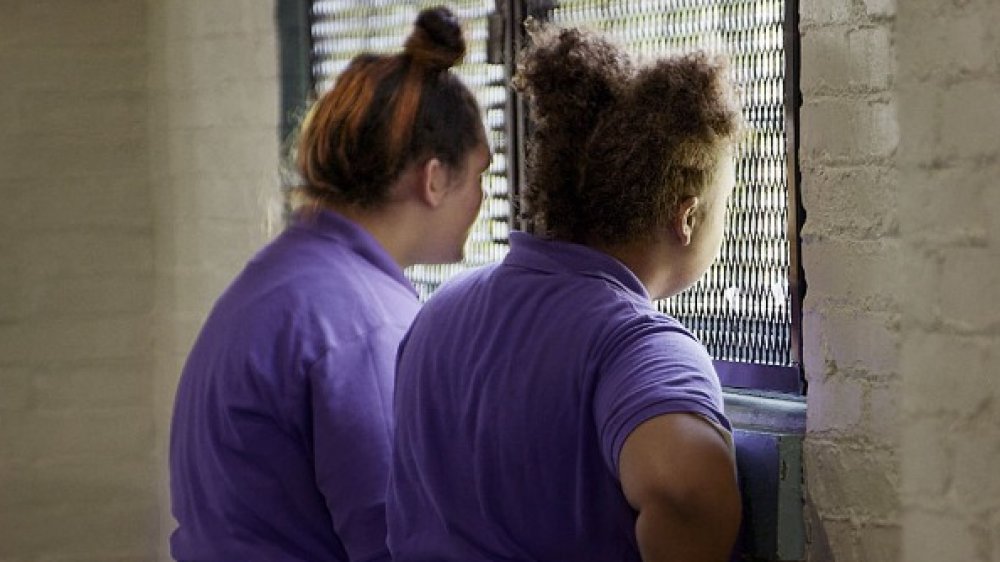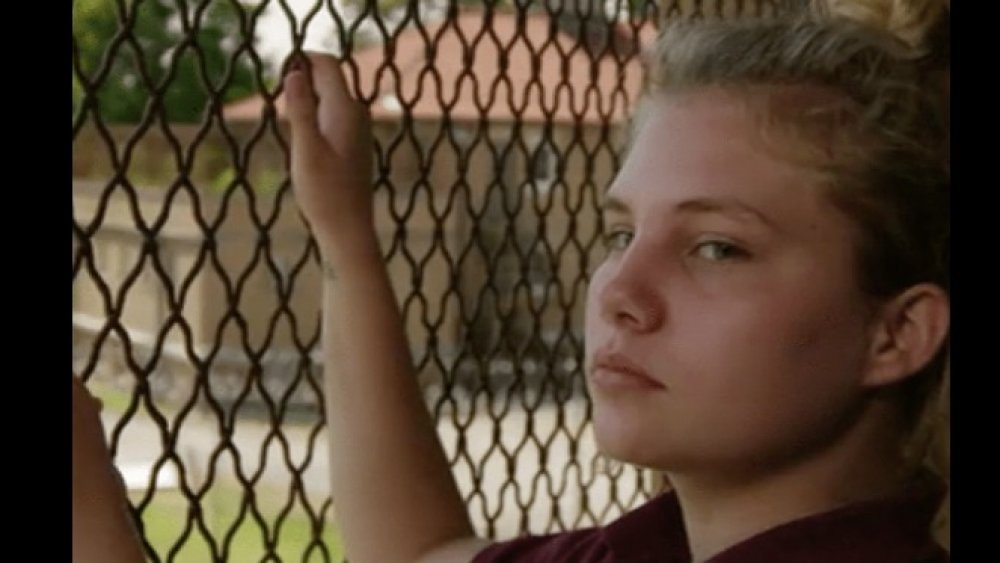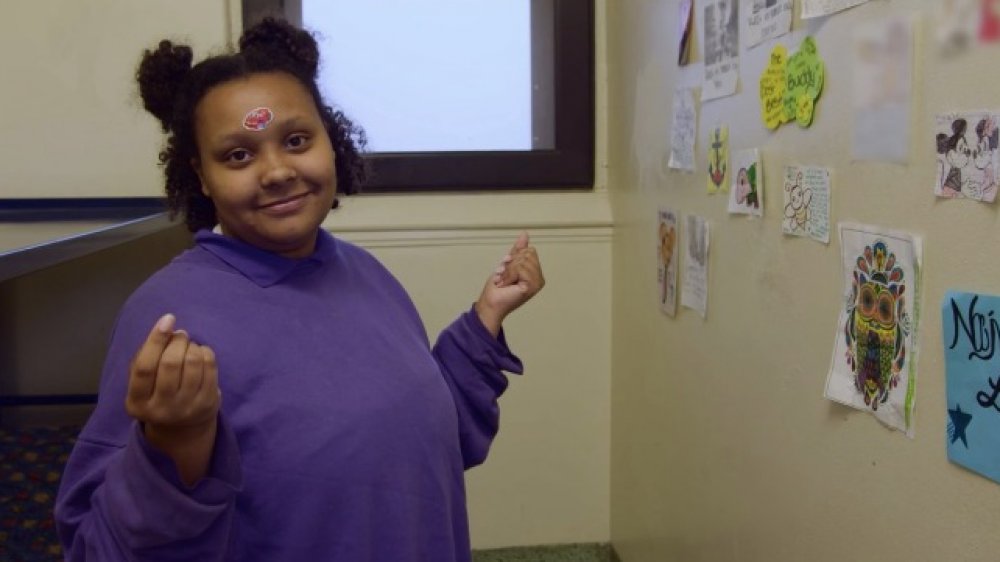The Real Reason The Juvenile Hall From 'Girls Incarcerated' Was Shut Down
If you've ever watched the Netflix unscripted series Girls Incarcerated: Young and Locked Up, which takes a look inside the juvenile prison system through the eyes of underage female offenders forced to go through it, you're probably aware that the show's only two seasons took place in two respective correctional facilities in the state of Indiana.
While this shake-up gave viewers an opportunity to meet an entirely new cast of girls (and subsequently a new set of opportunities for viewers to understand how societal forces like poverty, substance abuse, and privilege have a hand in how people end up inside the prison-industrial complex), there's another, more logistical reason: Madison Juvenile Correctional Facility (also known simply as "Madison") shut down before the first season of Girls Incarcerated even made its March 2018 debut.
So, why was Madison shuttered in the first place? The answer is one that reaches far beyond the periphery of Girls Incarcerated, and it's endemic to the U.S. prison system as a whole.
The closure of juvenile hall from 'Girls Incarcerated' might seem like a good thing, but it's not
On a surface level, the reason Madison was forced to shutter seems like a good thing: According to InTouch Weekly, there simply weren't enough inmates to justify its use as a juvenile hall. Right before its closure (and during filming for Girls Incarcerated) in 2018, an average of 40 students were housed on the premises at a time — a huge contrast to the average of 200 inmates housed there when the facility opened in 2009, as per The Madison Courier.
As for the remaining inmates, InTouch reported in March 2018, the maximum-security facility sent its remaining "students" (the preferred term for inmates) to LaPorte Juvenile Correctional Facility, a penitentiary formerly used as a boot camp for male juvenile offenders.
Madison didn't remain empty for long, though. The premises were immediately turned over for use by a neighboring correctional facility for adult female offenders, the latter of which had experienced an unprecedented influx of inmates, rendering the prison dangerously at capacity.
Even though the decreasing number of juvenile offenders in the state (or at least those within the state who were specifically sent to Madison) seems like a positive, it's also indicative of a crisis within the U.S. representative within the state of Indiana: prison overcrowding, an issue which the American Civil Liberties Union (ACLU) has declared a human rights crisis.
'Girls Incarcerated' switched locations due to prison overcrowding
Even if Madison's solid reputation as a program-oriented juvenile hall — one focused on rehabilitation, rather than punishment — was instrumental in the population decrease that ultimately led to its permanent closure, it's shuttering is still very much an outlier when it comes to the state of Indiana prisons as a whole. If a 2019 report by the ACLU is any indication, the state's prison overcrowding issue is life-threatening for anyone unlucky enough to be put behind bars.
"Many are forced to sleep on cell floors, exposed to extremely dirty conditions with insects and black mold," the ACLU states on their site. "Even worse, when prisons and jails are over capacity, the needs of prisoners with medical and mental health needs are often overlooked and unmet."
Within the past decade, the social advocacy group has gone as far as to file lawsuits through their state chapter against a number of Indiana's county jails. "Henry County Jail added triple bunk beds to cells without appropriate approval, cramming four people into a two-person cell," said the ACLU, describing why they felt they had no other choice than to file the suits. "[And] the overcrowding crisis in Gibson County Jail resulted in people sleeping on cell floors, leading to increased tensions and fighting among prisoners."
After Madison, LaPorte remains a beacon of hope for 'Girls Incarcerated'
While the overcrowding crisis in Indiana's correctional facilities (and the U.S. prison-industrial complex as a whole) has no immediate, easy fix, it seems like the girls of Girls Incarcerated might have more hope than most — that is, if they can turn their lives around and manage to stay out of the system both before and after they reach adulthood. And even though LaPorte might be a different facility in a different place, it still carries the same mission as Madison once did, serving as a diagnostic center for female youths and evaluating their offenders in an effort to rehabilitate those who pass through LaPorte's doors.
The approach is almost identical to that described by former Madison superintendent John Galipeau, who described Madison's mission for its students in Girls Incarcerated's pilot episode: "[Those incarcerated] get an education, mental health treatment, substance abuse treatment."
"When we compare our statistics, nationally, with performance-based standards, math scores, reading scores, family contact, Madison comes out on top," Galipeau concluded.
Is there hope for the girls of 'Girls Incarcerated'?
Shrinking recidivism rates are a rare phenomenon when it comes to the U.S. prison system. According to the Prison Policy Initiative, a 2019 report compiled by the U.S. Sentencing Commission revealed that 64% of federal prisoners convicted of violent offenses were arrested again within eight years of release, with 40% of federal prisoners convicted of non-violent crimes also re-arrested within the same span of time.
Despite the odds, many of the former cast members from Girls Incarcerated are managing to turn over a new leaf. In the comments section of the Madison Courier's report on Madison's closing, a user claiming to be Najwa Pollard, one of the show's fan-favorites, updated readers on where she is now. "Hey guys its me najwa pollard thanks to everyone who cares and wants to adopt me lol," Pollard apparently wrote in the Courier's comments section in February 2019.
Pollard — who was forced to remain in Madison after completing her sentence because she had no home to return to — reassured a slew of commenters who had offered to adopt her that she's safe, sound, and "at home with my brothers" following the conclusion of the show.

